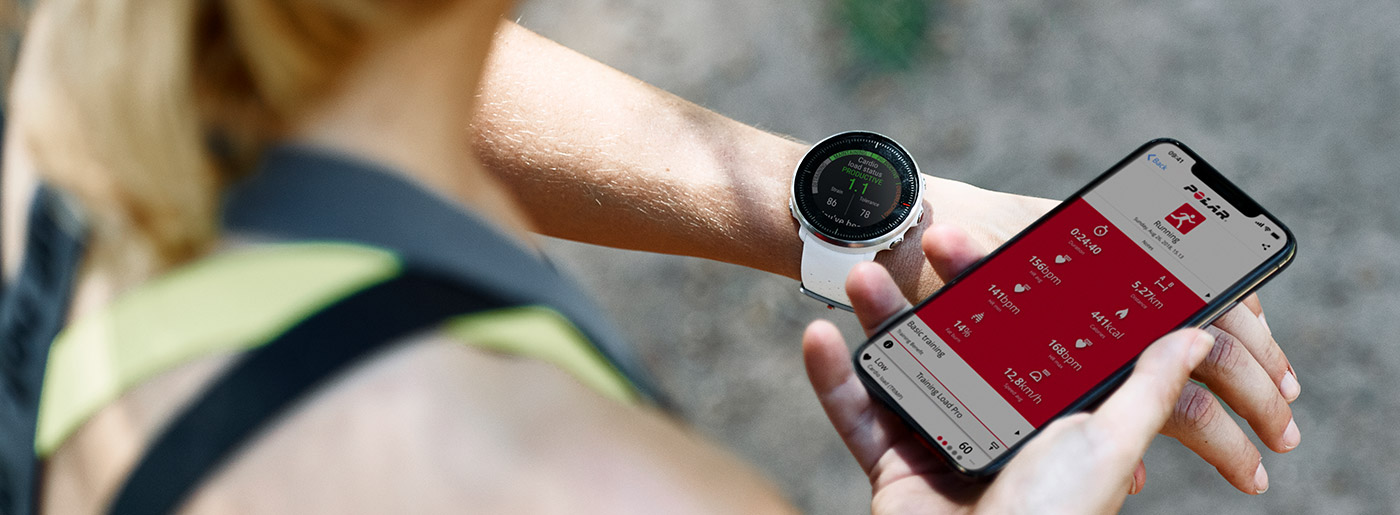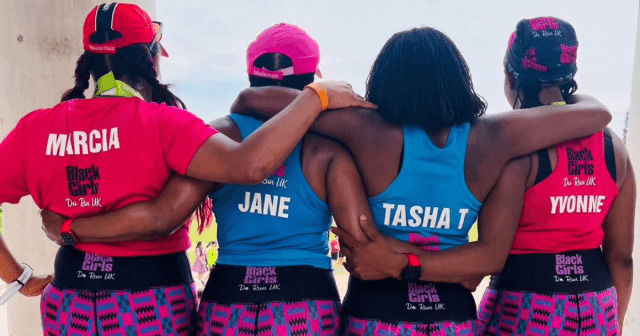Running is something we’ve all associated with some of our earliest memories. From chasing friends around the neighborhood to elementary physical education classes, it’s the most accessible activity on the planet.
From the outside looking in, running is about as simple as a sport can get. All you need is a pair of running shoes, and literally anyone can start running to improve their health or train for an upcoming race.
But with this low barrier to entry, it’s all-too-easy to find a false sense of confidence with your own running expertise. Sure, you may be faster now than you were this time last year, but…
- How did you get there?
- Why did you make these training decisions?
- How do you know you’re getting the most out of each workout?
From an internal perspective, a little experimentation can help you figure out some of these answers, but for a runner to truly maximize their potential, outside help can be an invaluable resource.
We hate to break it to you, but everyone has something to learn when it comes to running – no matter your expertise level.
For some insight on why some runners believe they’re the best experts when it comes to their running and on the value of an outside perspective, we caught up with professional triathlete Jocelyn McCauley who is a two-time IRONMAN champion and has a Masters of Exercise Physiology.
She’s more than qualified to be her own coach, but spoiler alert: she has one herself.
Why some runners Avoid Turning To Running expert?
I think that runners who have been running for a while think they know their body best and know what their body needs.
In many ways, that’s true. Some strengths of being self-taught include that they know why they’re doing the training they are. When you know the why behind your training it’ll be more efficient and effective at achieving the desired result. They also generally have a vast knowledge base.
On the flip side, self-taught runners can have several shortcomings — they tend to not listen to others’ advice or are not open to opinions other than their own. They also tend to get injured and burnt out more often, and they don’t have the best form.
How to shift to being more open to outside perspectives?
A basic growth mindset is the best way to shift these thoughts. When we realize that others have missing pieces to the success puzzle, and it doesn’t all rest with us, we then seek out that needed growth.
How can runners know What Type Of running Expert they should hire?
There are many running coaches out there who will do online remote coaching, but running groups are even better and are prevalent in many cities around the world.
Turning to someone for help doesn’t always mean hiring a coach. I have found that the best advice is advice from many different people and then tested and compiled into what works for me. I have sought advice from massage therapists, physical therapists, coaches and other runners.
How can a running coach Help a self-taught runner?
Running form and technique generally requires outside input — a running-specific coach can generally help with this and efficiency. The more efficient a runner, the faster the runner for the same effort.
A coach can also offer different training approaches that can help increase fitness. Having an outside eye looking at your form is important for efficiency as well as injury prevention.
A coach or outside advice can also help an athlete to avoid overtraining or help optimize training to see the best results.
How can A Running Expert prevent injuries, burnout or overtraining?
I have found that advice from a physical therapist has helped prevent injuries more than any other professional.
A physical therapist can find what muscle weaknesses you have and give you ways to correct those imbalances.
A running coach can help with training structure and balance, since many self-taught runners have the mentality that more is better and rest is for injuries.
WhIch tools Can Help self-taught runners with their Training?
A running watch, like Polar Vantage V, with a built-in running power meter can help to improve efficiency in your stride. A heart rate sensor (optical or chest-based) and accurate GPS tracking provide accurate data you can use during training and analyze afterwards to spot room for improvement.
It’s also vital for an athlete to use some sort of training log or diary. A training log can be used to look back on and see what worked or didn’t and to understand possible causes for injuries.
To maintain balance, it’s key to monitor your training load and recovery status to see if your training has the right balance of hard efforts and rest days.
Besides improving form and efficiency, what other intangibles does a coach provide?
There are some runners who like the accountability that a coach can bring. A coach will be looking at the workout, so the athlete will try to execute even better.
I just recently went through some really hard personal trials that came with some very high emotional stress. Stress will always affect training. My husband was great to talk with, but it was important talking with my coach to work through the frustration of how my training execution was being affected by my emotional stresses.
A coach is also a great sounding board when little complaints come up. There are plenty of times where an athlete doesn’t know if it’s something that’s okay to push through, or when it’s time to hold back.
More often than not, runners will err on the side of doing too much instead of pausing for rest. One of the most important role of a coach is to rein an athlete in and prevent them from internal imploding.
Would you say self-taught runners are missing an important component in their training?
There are a few runners out there without coaches who are still very successful, but even they have sought advice and gained wisdom from many others.
An outside perspective is vital in challenging what you think is best, and helps you know why you are doing what you are doing. I would challenge any self-taught runner to try a coach or mentor and see how much they will improve!
Is the self-taught approach okay for a casual runner just trying to stay in shape?
Even a casual runner can benefit from outside help. I would encourage casual runners to join a running group in their area to meet others and hear advice from those who are more experienced.
The advice could range from just how to stay healthy to how to achieve your next goal. Meeting others will help the casual runner to continue with their healthy habits as well.
If you liked this post, don’t forget to share so that others can find it, too.
Or give it a thumbs up!
I like this article
Please note that the information provided in the Polar Blog articles cannot replace individual advice from health professionals. Please consult your physician before starting a new fitness program.





